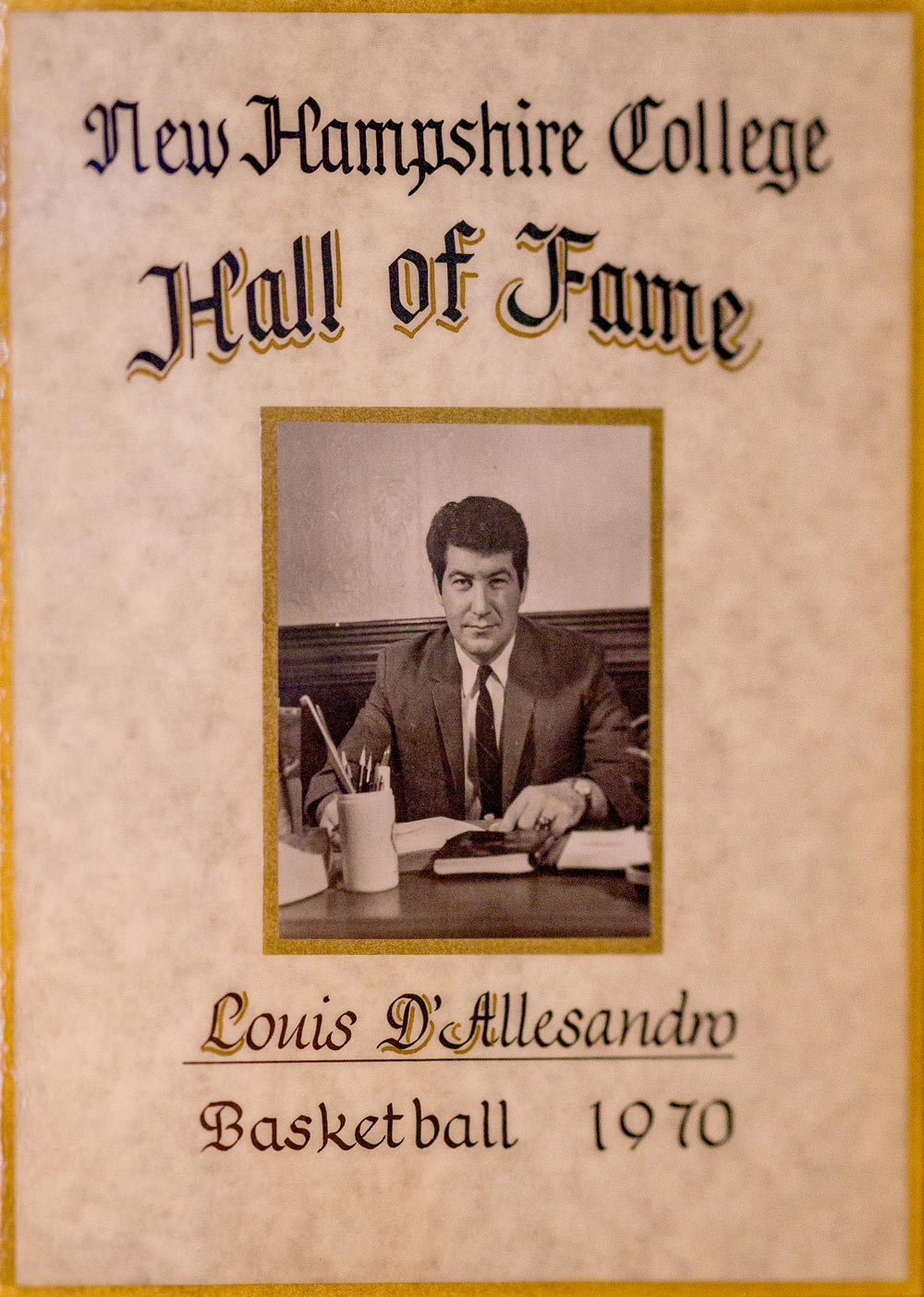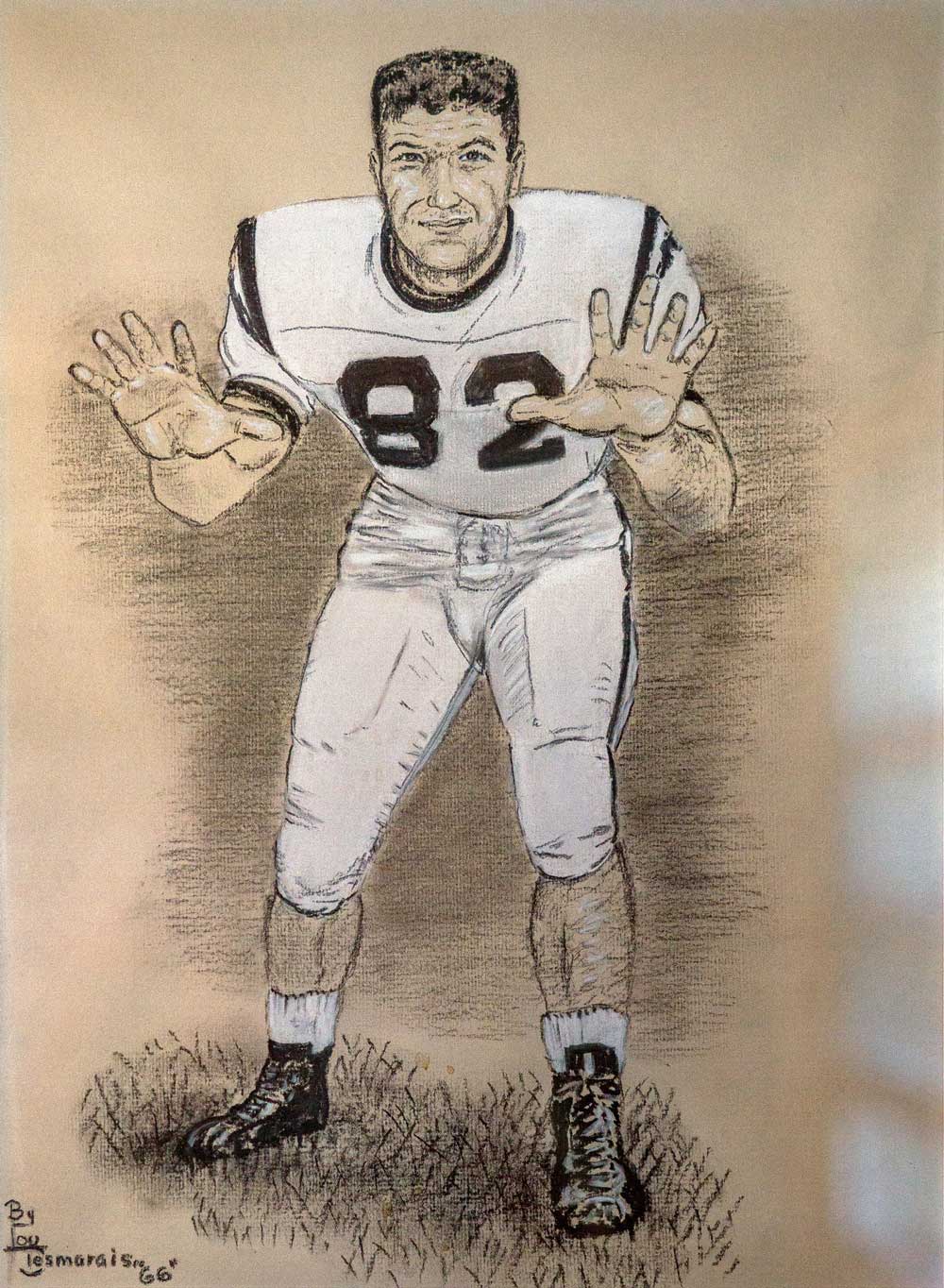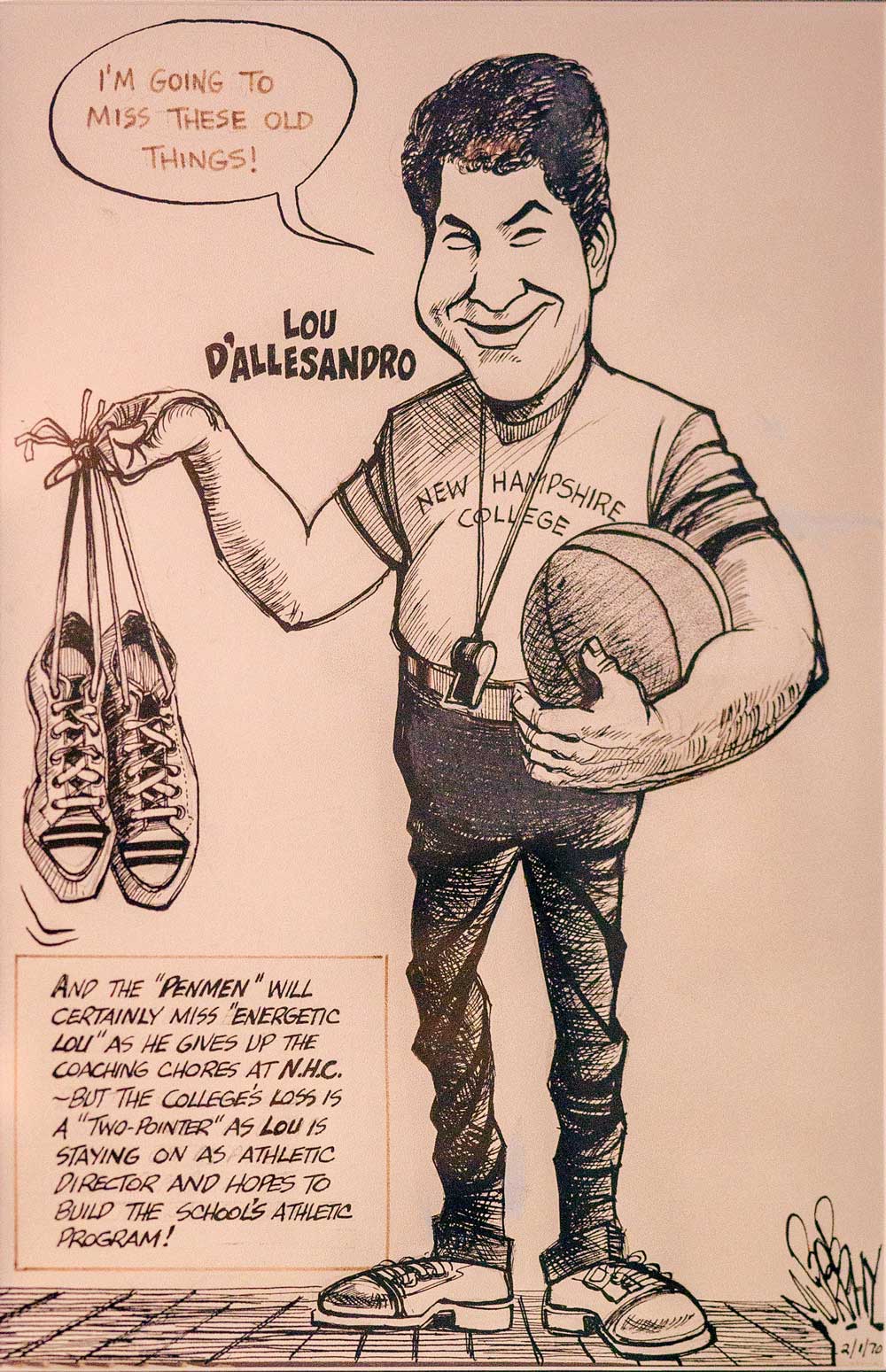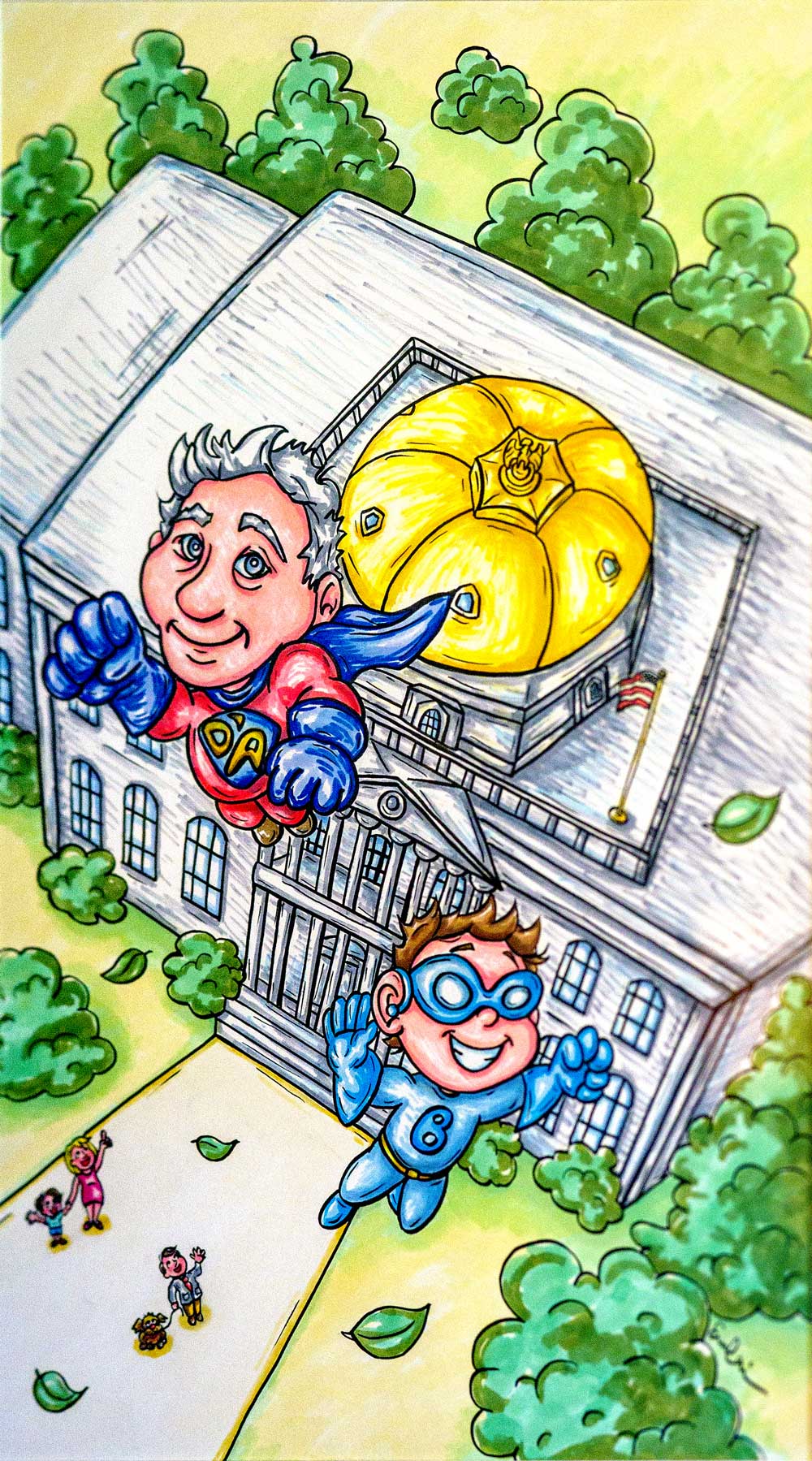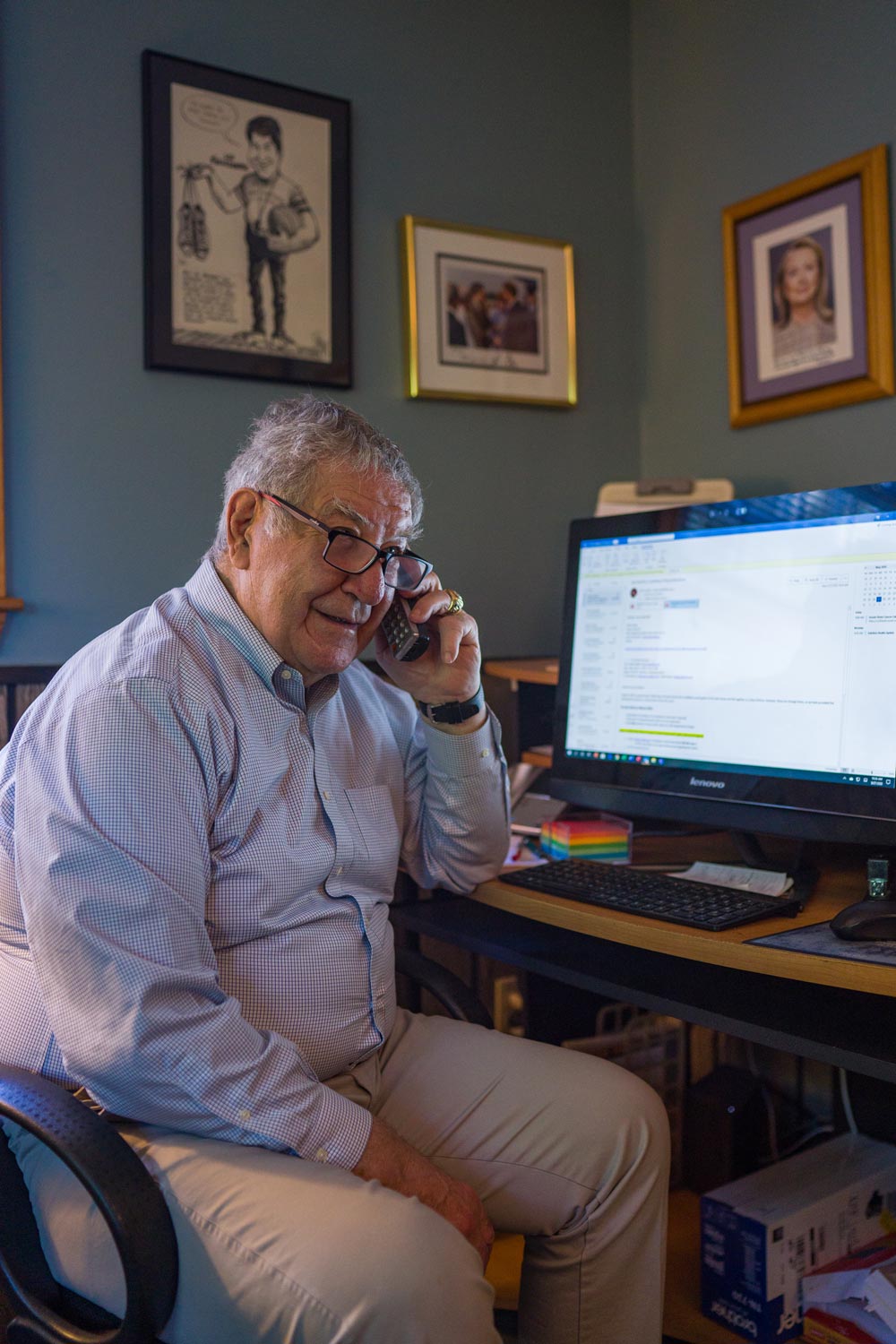or many, the word “politics” conjures up negative images of entrenched lawmakers bickering across party lines. Laconia Mayor Andrew Hosmer has a solution for that.
“If someone were to say to me, ‘I hate government and I hate everyone in government,’ my response might be, ‘If you can give me 30 minutes I’d like to introduce you to my friend Lou D’Allesandro, and then I want you to give me your opinion afterward,’” Hosmer says. “Because with Lou it isn’t about self-congratulations; it isn’t about collecting awards. It really is about serving others. He’s an old-school public servant.”
D’Allesandro, 81, has been serving the people of New Hampshire for the better part of five decades. He’s been a member of the state’s House of Representatives and Executive Council, and he’s currently serving his 11th term in the State Senate. He’s been a champion of education as a long-time member of the New England Board of Higher Education — where he recently completed a nearly 20-year run — and in the private sector as a top-level adminstrator at three colleges.
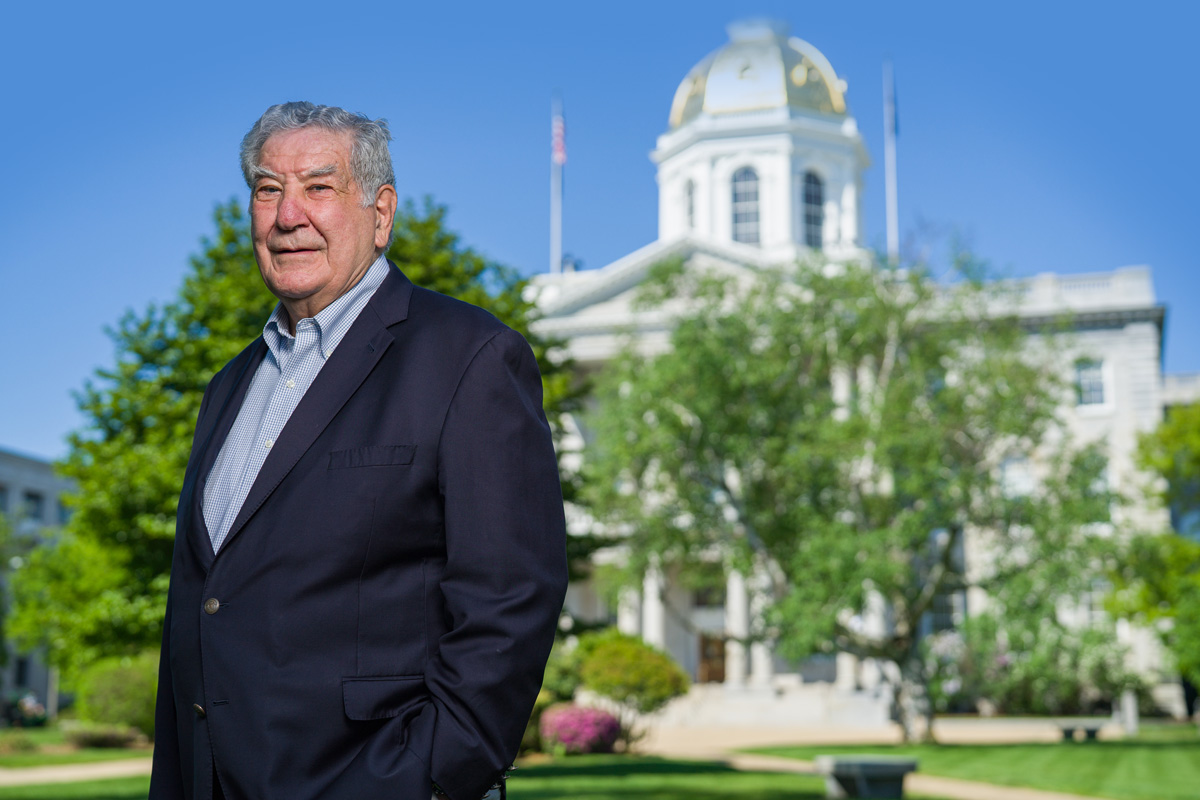
It’s a remarkable list of accomplishments, and they all have some roots at the University of New Hampshire.
“Going to UNH turned out to be my life-altering experience,” D’Allesandro says.
One of his most important, and entertaining, life-altering moments at UNH came in the spring of 1960 when he was a junior. John F. Kennedy was making a campaign stop in Durham and D’Allesandro was eager to see the senator from Massachusetts, who had also been the U.S. Congressional Representative for the East Boston neighborhood where D’Allesandro was born and raised.
The young D’Allesandro was late to the event and the crowd at New Hampshire Hall was already past capacity. Instead of turning around, he found another way into the building by climbing through a window, but he got more than he expected. The window opened high above a staircase and D’Allesandro took a tumble upon entry. As he was pulling himself up, someone offered him a hand. That someone was JFK.
“It was quite an exciting moment, to be honest with you,” D’Allesandro says, “and it really did steer me into politics.”
Kennedy’s charisma and speaking ability captivated 21-year-old D’Allesandro and sparked an interst in politics that has lasted a lifetime. That moment lives on in D’Allesandro’s office at the New Hampshire state house in Concord, both figuratively and literally. A photo of a young D’Allesandro and Kennedy is just one of the pictures and pieces of memorabilia that make stepping into the office feel like stepping into a time capsule.
“You realize pretty quickly that you’re sitting with someone who is the dean of New Hampshire politics, at least on the Democratic side,” Hosmer says.
As an 11-term state senator from the 20th District (which comprises Goffstown and parts of Manchester), he’s currently the chairman of the state Finance Committee and vice chair for both the Ways and Means Committee and Capital Budget Committee. He also served stints as president of Daniel Webster College and Nasson College and vice president of Franklin Pierce University.
The method D’Allesandro uses to get things done in the political world also took root at UNH. It’s all about building relationships for D’Allesandro, and he learned much about that art as a college athlete.
“I think the greatest lesson I had through sports at UNH was building relationships, and so many of those relationships have lasted all my life,” he says.
He decided to transfer to UNH, but needed money to make that happen, so he went to work at Wonderland, a dog racing track in Revere, Massachusetts. After arriving at UNH in the fall of 1957, D’Allesandro had to supplement his Wonderland savings with various jobs around campus, working in the dining halls and cleaning the bleachers at the field house.
D’Allesandro was a three-year starter at tight end for the football team. He was a captain his senior year and helped UNH claim its first-ever win against national powerhouse Delaware that season. He also played two years of lacrosse and a season of baseball for the Wildcats.
“Lou likes to be in the background, but I’ve introduced him to the team and talked about what an influence he had helping our program catch up to the rest of the country in terms of facilities,” UNH football coach Sean McDonnell says.
McDonnell first met D’Allesandro in 1979 when McDonnell was teaching at Parkside Junior High in Manchester and had two of D’Allesandro’s children in his class. Later, D’Allesandro helped out with the Manchester High School West football team when McDonnell was an assistant coach.
Being a voice for “all the people” is something D’Allesandro learned at an early age from his mother, Marion. She would bring people off the streets of Boston and into the D’Allesandro home to feed them. She would bring food to convents. Marion D’Allesandro died in 1946, when D’Allesandro was only 7 years old, but she continued to loom large in her son’s life well into adulthood.
“For years I would meet people who would tell me they remembered my mother and how kind and generous and welcoming she was,” D’Allesandro says. “She was a very special person and had a tremendous influence on me.”
Hosmer witnessed D’Allesandro’s own influence when he began his career in politics in 2010 with a run for the New Hampshire senate. The Democrat from Laconia was about to file his official campaign paperwork when he decided to call a few influential party members. One of his first calls went to D’Allesandro, and Hosmer was pleasantly surprised when the senator agreed to meet him that same day.
“I immediately jumped in my car and went down there and I spent an hour – no, he spent an hour with me,” Hosmer says. “I was, essentially, a stranger, and he couldn’t have been more gracious. And he had a deep understanding of New Hampshire politics and its complexities and who played what role.”
D’Allesandro also arranged a meeting between his campaign team and Hosmer, again going out of his way to help someone he had just met. Although Hosmer clearly looked up to him, D’Allesandro didn’t play the role of omniscient elder statesman. Instead of bragging about all the great things he did in previous campaigns, D’Allesandro talked about his past mistakes so Hosmer wouldn’t repeat them.
“He went above and beyond to teach me something and get me acclimated to New Hampshire politics, and it struck me that this was an extraordinary person,” Hosmer says. “From that moment on Lou has been a mentor to me in so many respects. We don’t always find ourselves on the same side of an issue, but my respect for him has grown enormously over the years.”
That last point is critical: Not only is D’Allesandro willing to help those who don’t share his point of view, he’s also willing to help people who don’t share his political party. The seeds for that unconditional generosity may have been sown by his mother, but they were also fostered by D’Allesandro’s own life experiences. He began his political career as a moderate Republican, but that party shifted too far in the conservative direction for D’Allesandro, so he became a Democrat in 1985.
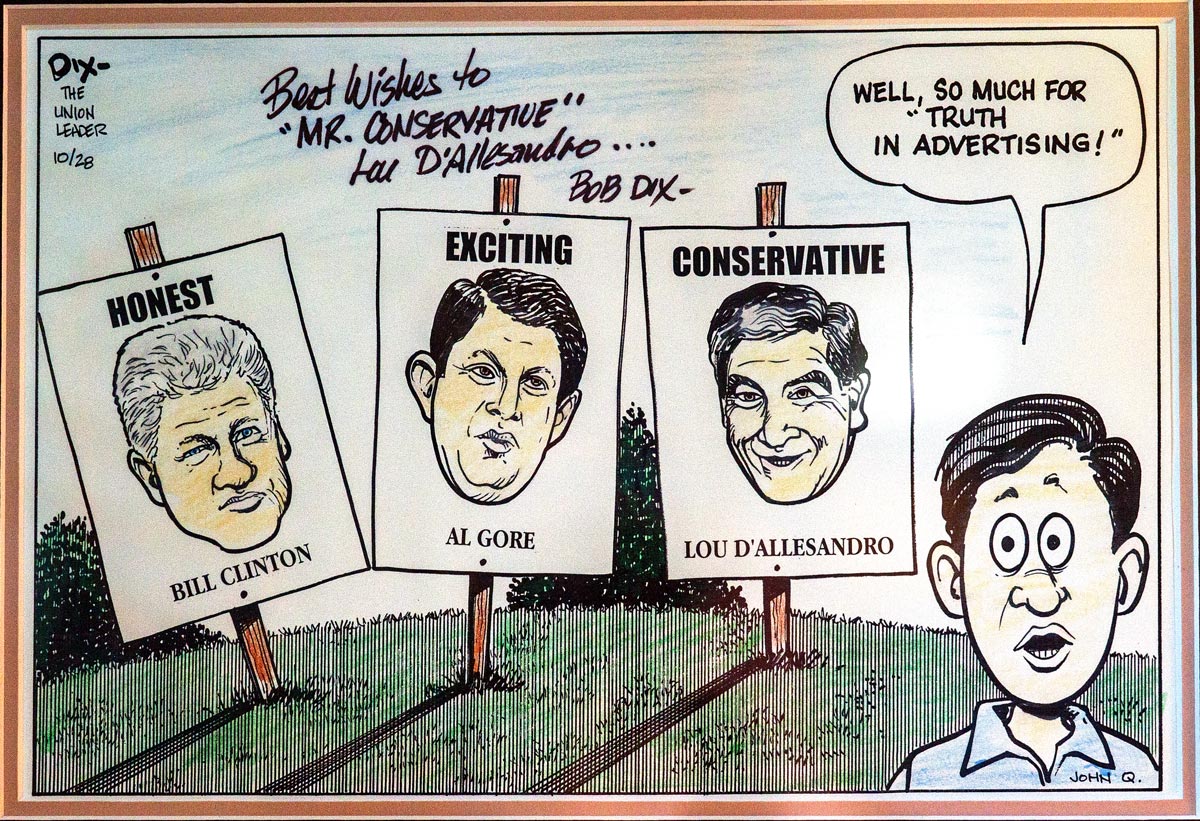
“He made it clear that basic values are distinct from politics,” D’Allesandro says of Peterson in Mark C. Bodanza’s 2018 book, ‘Lou D’Allesandro: Lion of the New Hampshire Senate and Thoughts for Presidential Hopefuls.’ “The best guidance was simply do what was right, not politically expedient.”
“The bill had some political overlay to it and I understood what the governor was doing, but it was the right thing to do for the people in front of us at that moment,” Hosmer says. “In hindsight, it was a good vote, and Lou was very much a leader on that, and that’s Lou in a nutshell. He does what he thinks is right.”
That’s a philosophy D’Allesandro wishes more politicians would embrace.
“I try to get along with everybody in the Senate, and tried to do the same thing when I was in the House and when I was on the Executive Council. It’s very discouraging when politicians don’t do that,” D’Allesandro says. “Not working with someone just because they’re in the other party is a terrible way to run the political process and to try and be of service to people, and that’s what I see happening and that’s awful. If you can’t get along there are no solutions.”
D’Allesandro is known for taking his time when it comes to giving out his coveted presidential endorsement. That’s because he wants to make the best choice for the nation, and for New Hampshire.
“You’re just doing what you think is right, and if you do that it comes back and helps the people and the state of New Hampshire,” D’Allesandro says. “You hope that’s the ultimate result.”
